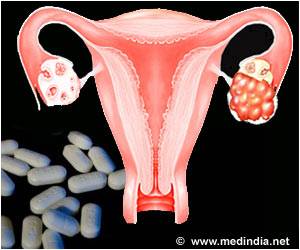Genes have an impact on how the body processes chemotherapy drugs and leads to different clinical outcomes for ovarian cancer patients.

TOP INSIGHT
Variants of ABCC2 gene pump chemotherapy drugs out of the body at higher rates and therefore may cause the treatment to be less effective.
"Chemotherapy and surgery are the standard treatment for women with ovarian cancer, but each patient responds differently.
"We wanted to know why some women respond very positively to treatment, while others suffer serious side effects, and some have a poor response," Professor deFazio explained. "We set out to understand which genetic factors influence how a patient processes chemotherapy"
"Our research showed that a gene called ABCC2 plays a critical role in eliminating chemotherapy from the body. ABCC2 is a drug transporter, which means it pumps a variety of different substances out of cells.
"We found that variants of this gene are associated with high rates of drug elimination, which means they pump chemotherapy drugs out of the body quickly and may cause the treatment to be less effective.
Professor deFazio said these latest research findings are an important step towards delivering better outcomes for patients.
Ovarian cancer is the most lethal gynaecological cancer and ranks as the sixth most common cause of cancer-related death in women in the Western world.
Source-Eurekalert
 MEDINDIA
MEDINDIA




 Email
Email










